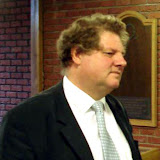We at
The crowd throw their clothes on the ground in front of the donkey as a sign of the royal dignity of the one riding it. Their shouted and sung greeting made clear who they presumed him to be:
“Blessed is the king who comes in the name of the Lord! Peace in heaven, and glory in the highest heaven!”
The king who came in the name of the Lord could only be the anticipated Son of David who would restore the fortunes of his people. The song of peace and glory that had been sung at his birth by angels is now repeated by the crowd. Jesus was the man who was going to put the shalom back into a
Of course the crowd would have no idea of how that was to be achieved. But in their song at least they seemed to realise that there could be no glory without peace. And for peace to be lasting the violence and aggressive selfishness that humanity had carried like the mark of Cain on its psyche had to be defeated.
The enthusiasm of the pilgrims terrified those in charge of the temple cult. The glory songs of the psalms had their place and it was not the street. This exuberant and spontaneous worship challenged them as the professional leaders and orchestrators of worship and prophecy. Let loose from the dignity and formalism of liturgy these worship shouts had a revolutionary fervour that mortified the ruling class. They called on Jesus to silence the rabble.
With another idiosyncratic insertion into Mark’s account Luke reports Jesus’s devastating reply.
“I tell you, if these were silent, the stones would shout out.” Which stones? The next time stones are mentioned it is to refer to the impressiveness of the stones of the temple. Could Jesus have been referring to the verse in Habakkuk 2 11 where it is said that the mansions of the rich will for ever cry out in testimony to the injustice of the system which so divided rich and poor. Was Jesus saying something like, “You are so proud of your temple worship in this fantastic building. When the day of judgment comes this flamboyant building will cry out against you”.
Perhaps Jesus was thinking that they might try to stone him for blasphemy. Perhaps he was issuing them a challenge: “Stone me and it will be for the glory of God for every stone you throw will be for the peace of heaven and earth for by my death and only by my death will peace and glory be restored.” In the Acts of the Apostles, the second volume of Luke’s work, precisely that happens to Stephen. Luke surely heard the story from Paul. As those stones hurled in hatred at Stephen thudded into his body the glory of heaven was revealed and the righteous judgment of God resounded with a ring of resurrection so true that it echoed into Saul’s ears for the rest of his life. Certainly the death of Jesus was to be means by which reconciliation was achieved: Jesus was a king in the reconciling business - and his most important reconciling task that of reconciling man with God - he was to be God's offering for us and our offering to God. With sublime irony Luke indicates the reconciling power of Jesus as he reports that at the moment of Jesus’s condemnation to death Pilate and Herod became friends from that day onwards.
Or was he saying something altogether different? “These rough hewn stones you regard as rubbish will praise God more resoundingly than all your neatly cut, dressed, polished marble stones of the temple.” The great words of Psalm 118 ring throughout the passage: we will already have sung them today: they include that prophecy that became so important a part of Christian tradition,
“the stone that was dumped at the back of the yard now has the place of honour.”
This was remembered not least by Peter whose nickname gave him particular reason to take the comment on board. It was to be the disciples, leading the worship that the leaders wanted to be silenced, who would be gather as “living stones” around that great stone rejected by the temple leaders, and built up into a temple that would outlast Herod’s flamboyant folly. And it would be through that community, the incipient sign of the true kingdom of righteousness that heaven and earth would united in glory and peace. They, the disciples, would indeed become the new royal priesthood.

No comments:
Post a Comment